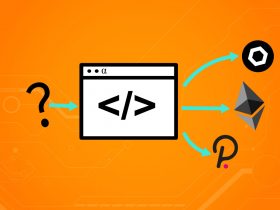Software Engineering is a competitive field and subject to aggressive recruiting. I have heard both engineers and recruiters express frustration resulting from working with each other. Engineers deal with recruiters not adequately briefed on technical details and recruiters deal with our very interesting personality types. Both sides have been through a lot, and a better approach to benefit both parties is needed.
I am a card-carrying software engineer – one of the technical types that can derail a conversation with the ever-annoying “well, actually” a dozen times before lunch without breaking a sweat. I have a computer science degree, am fluent in many programming languages, and have been building software in one form or another for a decade – but I wasn’t always a technical person.
Long before I fell in love with software development, I was a designer and had a healthy fear of anything that involved math, computers, and certainly programming. It is from this perspective that I write to help talent acquisition professionals better recognize how software engineering recruits can be their allies, not just potential paydays. It’s through this lens that I believe more mutually beneficial connections can be made and fewer headaches will result from the process.
Don’t worry – this isn’t an article lecturing about follow-up frequencies, job description accuracy, or technical screening. Rather, this is an article that will reveal to you how taking a few extra minutes with your recruits can supercharge your effectiveness in finding top talent. I’ve lost count of the times I’ve had recruiters reach out trying to have a conversation for positions that my LinkedIn profile and resume very clearly indicate I would be a poor candidate for. I believe a subtle shift in the recruitment process can help ensure your existing processes cultivate more qualified candidates who can continue benefitting you even after they accept the offer. That’s a bold claim — let’s discuss the details.
Win 1: Get a Free Education
Don’t let yourself get bogged down trying to embody the latest recommendations of interpersonal communication experts. Things like finding common ground or even more nuanced principles like key message development are great if you’re being quizzed, but aren’t always practical and actionable when you want to drive your bottom line. You might find yourself turning to boot camps, online courses, or even books to brush up on your technical depth – which sounds like a lot of work before work.
The recruits you speak with have more practical experience with tech on your radar than any Coursera course could ever afford in a reasonable amount of time. Align yourself to receive a first-hand education while helping better understand your recruit. How’s that possible? Easy – just ask them to describe what they like about one of the bullet points in a job description! Ask about trade-off decisions on previous projects on their resume. Learning why one tech was used over another is like taking the express train to a practical understanding.
Let’s take different programming languages as an example. As of 2024, some sources estimate nearly 9,000 different programming languages to exist. Are you keeping up with that? Let’s take just three languages for example: Python, Java, and C++. Each of these languages has widespread adoption in the tech industry and is likely to find its way into the descriptions of the positions for which you are hiring. Do you know the pros and cons of each relative to the other? Asking your recruits more technical questions can also help you better qualify future ones. For example, if you’re recruiting for a project revolving around mobile application development, real-time systems, or systems-level tasks, you’ll know to focus on your Python-specialized candidates last. Again, practical knowledge.
You could enroll in a boot camp for all three. Or, you could bake your question into your screening process. Ask a recruit why they chose a language for a project, which language they’d recommend for a web application, or even why they started learning in a specific language. In a short time, your exposure to the natural conversation on the topic should help you build a natural intuition on the subject. Just keep in mind that junior recruits might have a much narrower perspective on these types of questions.
Win 2: Get Tough Questions Answered Fast
I won’t pretend to understand the ins and outs of talent acquisition. I do understand optimization problems though, which are most certainly aligned with recruiting. When looking for ways to optimize your recruitment process, the most obvious step is to re-use the connections you build rather than relying only on new contacts. Surely, you’re already doing this to some degree. The thing about optimizing is that you can keep making things even better!
In developing a network of technical professionals, many connections are likely suitable to help answer technical questions. Engineers can help you audit job descriptions for nonsense, help you better realize where to look for new talent, and even help field tech-specific questions that aren’t easily Google-able. Don’t let those hard-earned connections fall by the wayside after the initial position is filled – even if your recruit filled it! This means nurturing these connections and doing more, in the initial steps for recruits, to better understand their backgrounds, develop a report, and make a meaningful connection. It might sound like more work, but it is the kind of effort that continues working for you.
For example, let’s say you’re hiring a team that’s looking for new talent to build their payment processing infrastructure. You know they’re “FinTech” but so is everything else that deals with money, right? A member of your technical network can help you better understand that recruiting candidates from a Crypto-based FinTech might not be what your traditional payments processing client is looking for. To be fair, there’s likely to be some overlap these days – but that’s something your technical network would help you sort out!
Win 3: Make Your Network “Work” For You
Engineers know other engineers and what they’re good at. In the time it takes you to fully absorb the technical details of a new position, comb your network of contacts, and draft a new posting to LinkedIn, a member of your technical network could come up with a shortlist of candidates with a first-hand opinion for each. Chances are, they could even vouch for that person’s fluency in any number of requirements for a position.
Now, this comes with some caveats. Namely, what incentives do these engineers have to offer you referrals? On the softer side of motivation, they get to help a friend find a job. Let’s put that one aside for the moment, filed away with things like helping make the world a better place. If you want practical immediate action you need to consider practical immediate incentives. Spoiler alert: engineers like money just like everyone else. What if you could send a single email to a network of engineers and have them all respond with a list of people they know would be qualified for a position? What would that be worth to you? What size of investment would you consider warranted for that type of return?
There’s no one-size-fits-all approach here, but the mechanics are universal: send and receive. In a common model, the referral model, you send compensation (or a chance of compensation) and receive leads. There’s no need to deep dive into the implantation here – just look at any major referral marketing program out there and you can discover the mechanics.
Every recruit is a possible referral machine for you, with their ears to the ground, making all the connections that could benefit you, day in and day out. How would you incentivize them to respond to emails with referrals? Effective incentives could range from a percentage share of the placement value or be as simple as a $100 Amazon gift card. When you have an email list of relevant connections, even a small incentive can produce tremendous results.
Final Thoughts
These are three easy ways to leverage the effort you put into recruiting to help ensure those efforts can continue to benefit you. Think of it like compound interest: initially, the size of the win will be minimal. However, over time the results will be exponential! By recognizing the value your recruits can offer you, your retained value from your recruitment efforts can begin compounding just like your savings might if you invested them wisely. Whether you’re in-house for a FAANG-level company or hustling as a private contract, these easy wins are accessible to you and can help supercharge your impact. The only thing you need is an email client, a spreadsheet editor, and some focused determination.






















